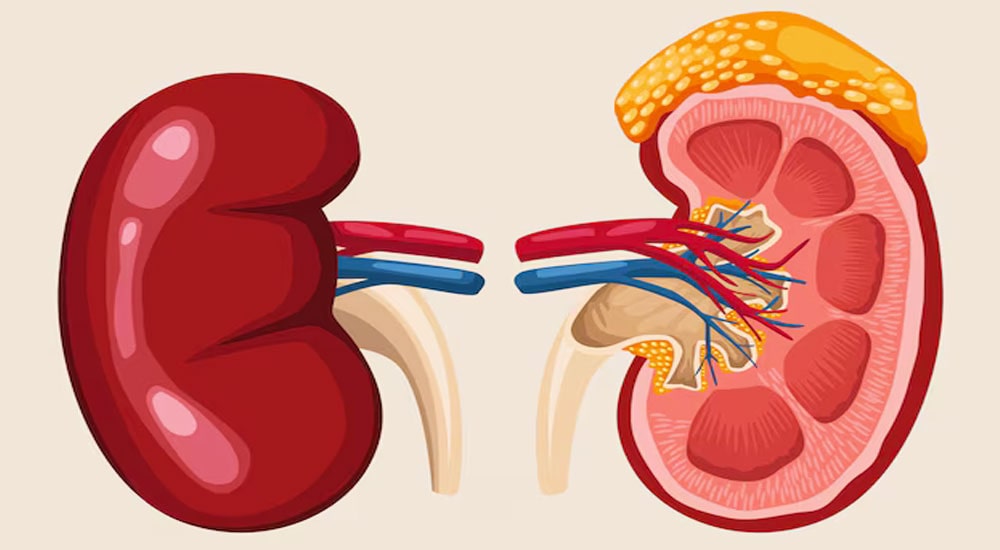
Chronic kidney disease is a condition where your kidneys gradually decline their functionality over the course of several years. With this disease, the condition of the kidneys worsens over time. Diabetes and high blood pressure are the most common causes of chronic kidney disease. However, there is no cure for chronic kidney disease, you can only prevent severe complications. Late-stage kidney disease may require dialysis or kidney transplant.
What is chronic kidney disease?
Chronic kidney disease is a gradually progressive condition that damages the kidneys and causes kidney dysfunction. If one of your kidneys stops working, the other one still carries out usual functions. Kidney dysfunction, sometimes, may lead to kidney failure.
What are the symptoms of chronic kidney disease?
Most people with chronic kidney disease often are not aware that they have CKD, because it does not cause many symptoms in its early stage. When one begins to notice the symptoms, CKD is already at its advanced stage. Also, the damages of the kidneys are irreversible. The common symptoms of chronic kidney disease may include:
What causes chronic kidney disease?
Diabetes and high blood pressure are the most common causes of chronic kidney disease. Other conditions that affect the kidney functions and may contribute to chronic kidney disease include:
Apart from these, recurrent kidney infection and obstructions of the urinary tract may also contribute to chronic kidney disease.
Who is at risk for chronic kidney disease?
Although anyone may get chronic kidney disease, some people are at more risk. If you:
How is chronic kidney disease diagnosed?
To diagnose chronic kidney disease, your healthcare provider will ask you about the symptoms, medical history, and family medical history. After that, they will order certain diagnostic tests, such as serum creatine, blood urea nitrogen, estimated GFR, and urine test.
Unfortunately, there is currently no treatment available for chronic kidney disease. However, you can take steps to sustain kidney function so they work as long as possible. To maintain kidney function, make sure to maintain blood glucose levels, manage blood pressure, follow a kidney-friendly diet, be active, stay at a healthy weight, and avoid smoking.